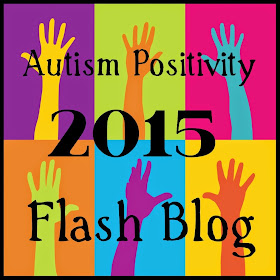I have met some really, really nice people in my community who are involved in disability advocacy. I have met a ton of nice people from my work with the library. Here's the thing though, not every nice person with great intentions are actually helping disabled people. You have to be willing to listen to us, to put your feelings aside and actually think about what you are doing and who you are doing this for. You can't get mad at Disabled people who don't just nod in agreement with everything you say and regurgitate internalized ableism back at you.
The phrase "Nothing about us, without us" is not just a catchy slogan. You can't make decisions for other people without their input. Yes, even when those people are Disabled, Autistic, or even when they are your own children. You can't make our voices second to the voices of parents and professionals. That's not how it should work, but far too often, that's how it does work.
I have to listen to a lot of dehumanizing, ableist, oppressive stuff just to be involved in my community. This is what I have to do to be "included". And when I call people out on the things they are saying and doing "for us", 9 times out of 10, I am made out to be the asshole. When I am just trying to get people to understand and recognize that disabled people, we are people! We are not burdens, we are not mistakes, we are not eternal children who exist as extensions of our parent's suffering.
Some days, it just really gets to me. The people who threaten me, or send me hate mail, I almost have more respect for them because they are at least honest with me. It's the "nice" ones, the ones who condescend to me, who think that I'm too aggressive, too political, too radical, too much of whatever, that just make me feel defeated. It's the nice people who want to cater to parents and professionals, who want to tell me that the only disability in life is a "bad attitude", who think that positive thinking and compromise will remove barriers to equality.
We have so much work to do. So much work to make life better for kids like my son, and the children of my friends and even the children of people who hate me and call me divisive and horrible. They deserve better than this. That will not happen with compromise, or with continuing the narrative that disability is shameful and tragic.
We have so much work to do.

